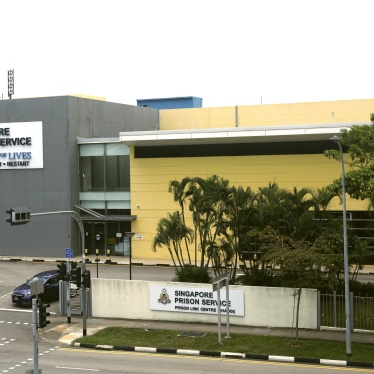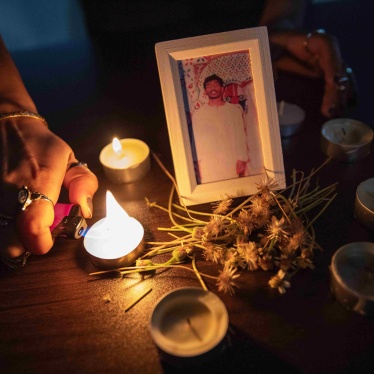While several Asian governments have taken steps to reduce their reliance on capital punishment, Singapore marks the 22nd World Day Against the Death Penalty by continuing to execute death-row prisoners and muzzling anti-death penalty activists.
The number of countries that have not abolished or imposed a moratorium on the death penalty in law or in practice has been shrinking. Under article 6(2) of the International Covenant on Civil and Political Rights, countries that have not abolished the death penalty should reserve its use “only for the most serious crimes.” A group of United Nations human rights experts said in 2023 that drug offenses “clearly do not meet this threshold.”
Yet Singapore stands out for using this inhumane practice for drug-related offenses. On October 4, authorities executed Mohamed Azwan bin Bohari for drug trafficking, despite his having an appeal pending along with 30 other prisoners, and ignoring a call to halt the execution from the UN Human Rights Office. His family received just four days’ notice. On October 5, the Transformative Justice Collective, whom the government has long sought to silence for their anti-death penalty activism, was issued a notice for their reporting on Azwan’s case requiring them to post a government-determined “correction.”
In contrast, while neighboring Malaysia retains the death sentence for drug trafficking under the Dangerous Drugs Act 1952, it abolished the mandatory death penalty for this offense and 11 others that carried it.
On September 20, Taiwan’s top court upheld the constitutionality of the death penalty but introduced greater restrictions, including strengthening due process rights.
And in Japan, a landmark ruling saw Iwao Hakamata acquitted after 58 years on death row. Hakamata’s case is a powerful reminder of the need for governments to abolish the death penalty, due to its cruel and irreversible nature. Human Rights Watch has opposed the death penalty in all circumstances for more than three decades.
While other countries in the region bolster due process rights in capital cases, Singapore appears determined to make it harder for death-row prisoners to appeal their cases. With many like Azwan on death row in Singapore, the shortened notice period given to his family has sparked fear of the looming threat of further executions.
Instead of pushing Singapore further from the regional trend, Prime Minister Lawrence Wong’s government should impose a moratorium on the death penalty, before abolishing it altogether.










